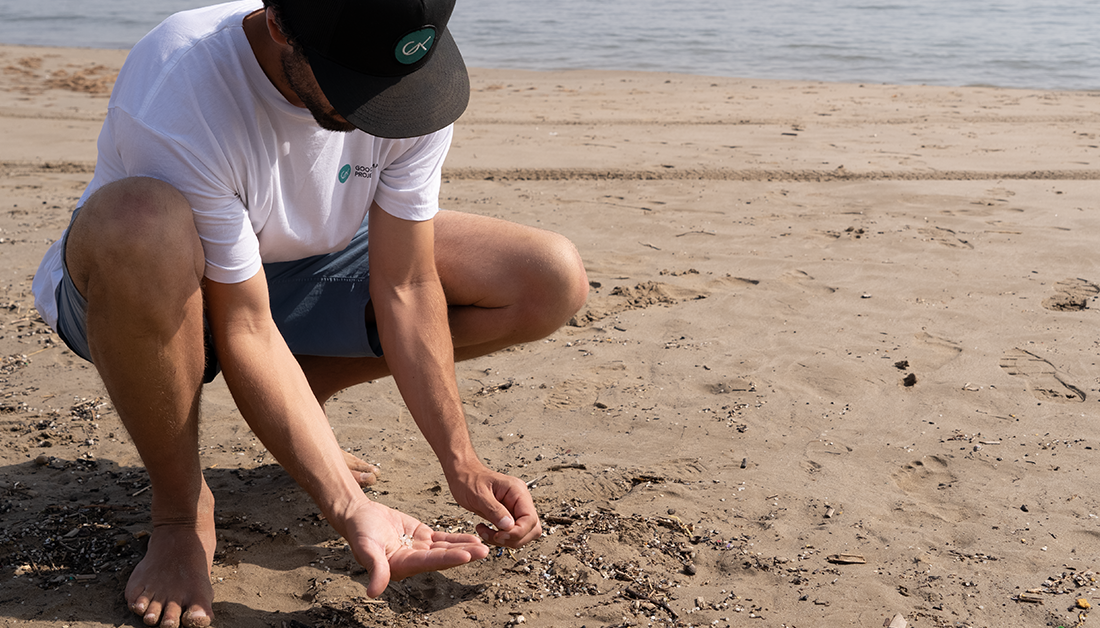From the North Sea’s rugged coastlines to the sun-drenched beaches of the southern Mediterranean, Europe faces a pervasive yet little-known environmental threat: pollution from nurdles, tiny plastic pellets that serve as building blocks for nearly all plastic goods, from yoghurt cups to toothbrushes, computer casings and car bumpers.
Annually, over 160,000 tonnes of these plastic granules infiltrate the EU environment, a volume comparable to the combined plastic recycling efforts of Denmark and Sweden. Drifting through storm drains, rivers and waterways, nurdles disperse widely, carried by winds and ocean currents, persisting for years or washing up on shorelines.
While severe pollution cases are concentrated around extensive industrial sites, the issue extends beyond these areas. Reports reveal elevated nurdle pollution levels in inland regions across northern Europe and even in remote locations like the Azorean islands, 1,500 kilometers off the coast of Portugal.
Photos by Davide Mancini
The consequences of this ubiquitous contamination are profound. Mistaken for food by marine wildlife, they can cause injury and death. Over time, they break down into nanoparticles that can accumulate in the food chain, potentially posing risks to human health. Moreover, they attract noxious pollutants and serve as carriers for harmful bacteria.
Yet nurdles remain conspicuously overlooked in the plastic pollution debate. There are currently no international regulations compelling companies to implement measures to prevent loss or report pollution incidents. Similarly, most state governments lack rules for monitoring and cleaning up nurdle spills when they do occur.
This cross-border investigation sheds light on this often-overlooked source of microplastic contamination, offering insights into its root causes, analysing the threats it poses to ecosystems and human health, and exploring the regulatory void that prevents holding companies accountable for the pollution they generate.






